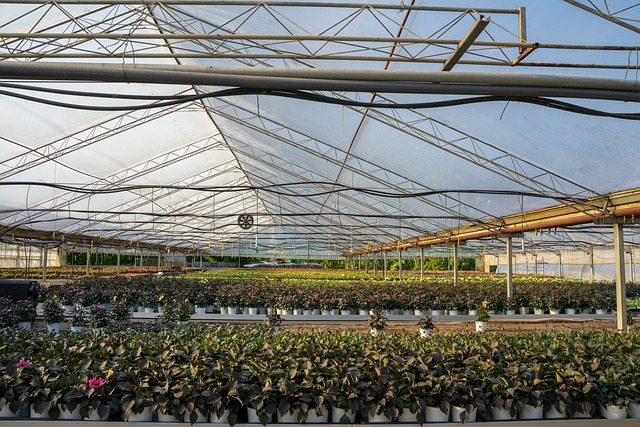
Are Cannabis Seed Companies Profitable?
Are you considering entering the profitable world of cannabis seed businesses? With the growing demand for seeds, there has never been a better time to dive into this thriving industry. As more and more people embrace the benefits of cannabis, starting a seed business can be a rewarding and lucrative venture.
In this blog post, we’ll guide you through the process of starting and scaling your cannabis seed business, from understanding the seed industry to crafting your business vision, establishing a reliable seed supply chain, and marketing your products effectively. By the end of this journey, you’ll be well-equipped with the knowledge and inspiration needed to cultivate a thriving seed business of your own.
So, let’s embark on this exciting path and explore the world of starting a seed business together, uncovering the secrets to success and learning from the experiences of those who have already made their mark in the industry.
Quick Summary
- The cannabis seed industry provides great potential for business owners with the right plan.
- Crafting a clear vision, identifying your niche, and developing a unique selling proposition are essential steps to success.
- Proper financial management and scaling strategies can help ensure the longevity of the business in an ever-changing market.
Understanding the Cannabis Seed Industry
The cannabis seed industry is a growing market fueled by a surge in legalization and heightened consumer awareness. As a result is on the rise. This presents an excellent opportunity for those looking to start their own seed business and capitalize on this booming market. With all that seed variety available, now is the perfect time to enter the seed industry and begin growing seeds for profit.
Getting into the cannabis seed business is a big step, so it’s good that you’re doing your research first. There are a lot of factors to consider. Here’s a quick rundown:
Legal Considerations
- Legal Status: Check the federal and state laws regarding the cultivation, sale, and distribution of cannabis seeds. The legal landscape is always changing, so stay up-to-date.
- Licenses and Permits: You’ll most likely need a variety of licenses and permits to operate. Application processes can be lengthy and costly.
- Zoning Laws: Make sure the location you pick for your business complies with local zoning laws.
Market Research
- Target Market: Who are your customers going to be? Are you focusing on medicinal cannabis, recreational, or both?
- Competition: See who else is in the game. Can you offer something they can’t?
- Pricing: Research the standard prices for various types of seeds and work out your pricing strategy.
Product Knowledge
- Strains: Understand the various cannabis strains, their growth patterns, and the kinds of effects they produce.
- Quality Control: You need to offer high-quality seeds. Bad seeds = unhappy customers.
- Supply Chain: Where are you sourcing the seeds from? Can your supplier meet your demands?
Business Planning
- Startup Costs: How much is it going to cost to start your business? Do you have the capital or will you need investors?
- Revenue Model: How will you make money? Retail, wholesale, online?
- Marketing: How will you attract customers? Online marketing, partnerships, and customer loyalty programs can all be effective.
Operations
- Storage: Seeds need to be stored under specific conditions to ensure they remain viable.
- Shipping: How will you handle shipping, especially if you plan to do business internationally?
- Staff: You’ll likely need a team to help you with everything from sales to shipment.
Risk Management
- Legal Risks: You could be subject to legal challenges if you’re not careful.
- Financial Risks: The industry is volatile; make sure you’re financially prepared for ups and downs.
- Quality Risks: A bad batch of seeds could seriously damage your reputation.
There’s a lot to think about, but don’t let it overwhelm you. Take it step by step, and you’ll have a solid foundation to start your cannabis seed business. Good luck!
Cannabis seed businesses, also known as seed companies, encompass a wide range of products and services, from producing seeds for various plant varieties to selling seeds directly to customers. The US seed market is growing fast, with seed growers producing a plethora of seed types, such as sativa-dominant hybrids, feminized seeds, auto-flowering seeds, high CBD seeds, and fast version seeds to name a few.
As a seed company, hybrid varieties are becoming increasingly popular in the seed production industry.
With the right seed business plan and a clear understanding of the seed industry, you could be well on your way to establishing a successful small-scale seed business.
Crafting Your Seed Business Vision
To create a successful cannabis seed business, it’s essential to start with a clear vision. This entails identifying your niche, defining your target customers, and developing a unique selling proposition (USP) that sets your business apart from competitors. By taking these initial steps, you’ll lay a solid foundation for your seed business and set yourself up for success.
Consider what type of cannabis seeds you want to specialize in and what segment of the market you want to cater to. By focusing on a specific niche, you can differentiate your business from others and better serve the needs and preferences of your target audience. A strong business vision will also inform your marketing plan, helping you reach potential clients and expand your seed business.
In the following subsections, we’ll explore the process of crafting your seed business vision in more detail, providing insights and guidance on identifying your niche, defining your target customers, and developing your unique selling proposition.
Understand the Legal Landscape
Research the federal, state, and local laws. This includes everything from growing to selling and shipping.
Understanding the legal landscape is crucial when you’re entering the cannabis seed business, as it’s a highly regulated industry. Here’s a deeper dive into what you should consider:
Federal Laws
- Controlled Substances Act: In the United States, for example, cannabis is still a Schedule I controlled substance at the federal level. This can have implications for things like banking and interstate commerce. (LINK)
- Federal Enforcement: Even if your state allows cannabis business operations, you still have to consider the possibility of federal enforcement actions.
- FDA Regulations: If you’re planning to market cannabis for medicinal purposes, you might have to deal with the Food and Drug Administration (FDA) guidelines and approval processes. (LINK)
State Laws
- Legal Status: The first thing to check is whether cannabis is legal in your state for medical, recreational, or both types of use.
- State Licenses: Most states require a variety of licenses for growing, processing, and selling cannabis and cannabis seeds.
- Operational Guidelines: States often have detailed regulations governing how cannabis businesses must operate, including security requirements, record-keeping, and reporting.
- Taxation: Different states have different tax structures for cannabis, so it’s crucial to understand your tax obligations.
Local Laws
- Zoning Regulations: Local governments often have specific zones where cannabis businesses can operate. Make sure you know where you’re allowed to set up shop.
- Local Permits: In addition to state licenses, you may also need local permits to operate.
- Community Relations: Some communities have strong opinions about cannabis businesses. Understanding local sentiment can be key for your business’s long-term success.
Growing, Selling, and Shipping
- Cultivation Laws: If you’re growing your own cannabis to produce seeds, understand what your state and local laws say about cultivation limits, pesticide use, and other agricultural practices.
- Retail Laws: States have various regulations about how and where you can sell cannabis seeds, including age restrictions for buyers and labeling requirements.
- Shipping Restrictions: Shipping cannabis seeds across state lines can be tricky due to federal laws. Even within a state, there can be restrictions or specific procedures to follow.
Compliance and Legal Support
- Legal Counsel: Given the complexity and changing nature of cannabis laws, retaining legal counsel specialized in cannabis law is advisable.
- Updates and Audits: The legal landscape is always changing. Stay updated on any legal changes and consider regular compliance audits.
Understanding the legal intricacies can help you avoid severe penalties and ensure your business runs smoothly. It’s not just a one-time task but an ongoing responsibility. Hope this helps!
Identifying Your Niche
Choosing a niche for your seed business is critical to cater to specific customer needs and preferences. By selecting a niche that aligns with your passions and expertise, you’ll be better equipped to provide valuable products and services to your customers.
Step 1: Market Research
- Consumer Trends: Look at what consumers are currently interested in. Are they leaning towards high-CBD strains, organic options, or something else?
- Competitive Analysis: Take note of what your competitors are offering and see if there’s a gap you can fill.
Step 2: Identify Problems or Needs
- Customer Pain Points: What are some common problems cannabis growers face? Could be anything from long cultivation times, poor germination rates, or specific diseases.
- Untapped Markets: Are there groups of people who are generally not being served by existing businesses?
Step 3: Leverage Your Strengths
- Special Skills or Knowledge: Do you have a unique skill set or specialized knowledge that could set you apart? Maybe you have a background in horticulture or botany.
- Unique Resources: Do you have access to rare strains or specialized equipment?
Step 4: Validate Your Idea
- Talk to Potential Customers: Before diving in, get some feedback from people who would be your target audience.
- Test the Market: You might want to start small, maybe through an online platform, to validate that there’s actual demand for your niche product.
Step 5: Consider Legal Constraints
- Regulatory Barriers: Make sure that your niche doesn’t put you at risk of violating any laws or regulations.
- Trademark Issues: Ensure that you aren’t infringing on anyone else’s branding or intellectual property.
Some Niche Ideas to Consider
- Rare or Exotic Strains: Offering strains that are hard to come by can make you the go-to source for collectors or connoisseurs.
- Fast-Growing or Auto-Flowering Seeds: Ideal for people who want to harvest quickly.
- High CBD Strains: Targeting medical users who are not interested in the psychoactive effects.
- Seeds for Specific Climates: Offer strains that are optimized for different weather conditions.
- Complete Growing Kits: You could offer seeds along with soil, nutrients, and growing guides, aimed at beginners.
Remember that a niche doesn’t have to be a limitation. It’s a way to differentiate yourself, especially when you’re starting out. As you grow and succeed, you can always expand your offerings to appeal to a broader market.
By carefully selecting your niche, you’ll be well-positioned to meet the needs of your target customers and establish a strong brand identity in the seed industry.
Defining Your Target Customers
Understanding your target customers is crucial for tailoring your products and marketing efforts effectively. By defining your target audience, you’ll be better equipped to create a cannabis seed business that resonates with their needs and preferences. This, in turn, will help you attract and retain customers, ultimately contributing to the success of your seed business.
You are in the B2B industry. So consider creating a target audience profile by looking at potential buyers on LinkedIn. Start by understanding general trends in the cannabis seed industry. Are most buyers home growers or commercial? Do they lean more toward medicinal or recreational use?What types of seeds are they interested in? How big is their grow?
Then identify pain points and solutions. Identify the challenges or needs your potential audience faces. Is it the need for easier-to-grow strains, or perhaps high-yield varieties? How does your product solve these problems or fulfill these needs?
Create detailed personas for your target audience segments. Give them names, backgrounds, and specific needs.
By answering these questions, you’ll gain valuable insights that will inform your product offerings and marketing strategies. Additionally, researching your competitors’ target audience can help you identify opportunities to differentiate your seed business and carve out your own unique place in the market.
Developing Your Unique Selling Proposition
A unique selling proposition (USP) is a statement that outlines how your cannabis seed business differs from competitors, providing customers with compelling reasons to choose your products over others. A strong USP can be a powerful marketing tool, helping you increase brand awareness, attract new customers, and build customer loyalty.
To develop your USP, consider the benefits and features of your seeds, as well as any additional services or offerings that set your seed business apart from competitors. This could include exceptional customer service, exclusive seed varieties, or a commitment to sustainable production methods. By clearly articulating your USP, you’ll be better positioned to communicate your value proposition to potential customers and differentiate your seed business in a crowded market.
Remember, your USP should be an authentic representation of your seed business and its unique strengths. It should resonate with your target audience and provide them with a compelling reason to choose your seeds over those of your competitors. By developing a strong USP, you’ll lay the groundwork for a successful marketing plan and a thriving seed business.
Establishing Your Seed Supply Chain
A reliable seed supply chain is crucial for the success of your cannabis business. This involves sourcing high-quality seeds, ensuring proper storage, and using effective packaging and labeling techniques. By establishing a robust seed supply chain, you’ll be well-equipped to meet customer demand and maintain the quality and consistency of your products.
In the following subsections, we’ll delve deeper into each aspect of the seed supply chain, providing guidance on sourcing high-quality seeds, maintaining proper storage conditions, and employing effective packaging and labeling practices.
Sourcing High-Quality Seeds
The quality of your seeds is paramount to the success of your seed business. Sourcing seeds from reputable suppliers ensures that your products meet the highest standards and deliver consistent results for your customers. Some of the most reputable sources for high-quality seeds include Crop King, Herbies Seeds, Rocket Seeds, Seedsman, and Quebec Cannabis Seeds to name a few.
High-quality seeds are indispensable for producing uniform, high-yielding crops. Inferior-quality seeds may result in low yields, illness, and even crop failure. By carefully selecting your seed suppliers and prioritizing quality, you’ll be well-positioned to build a strong reputation in the seed industry and cultivate a loyal customer base.
Proper Seed Storage
Proper seed storage is essential to maintain the viability and germination rates of your seeds. The optimal conditions for seed storage include a cool, dry place away from direct sunlight and moisture. Storing seeds in airtight containers, such as Mason jars or paper envelopes within a jar, can help preserve their germinative power.
Temperature also plays a crucial role in seed storage. Maintaining a temperature between 42°F and 46°F, such as in a refrigerator, can help ensure the longevity and effectiveness of your seeds.
By implementing proper storage techniques, you’ll be able to provide your customers with high-quality seeds that yield consistent results, contributing to the success of your seed business.
Packaging and Labeling
Effective packaging and labeling are crucial for protecting your seeds and providing essential information to your customers. The appropriate packaging material for seeds is paper, as it allows for proper ventilation while protecting the seeds from damage. Proper packaging also helps maintain the germinative power of the seeds, ensuring that they remain viable and effective for your customers.
Labeling is equally important because it relates directly to local, state, and federal legal requirements. For instance, in the USA, cannabis seeds are illegal at a federal level, and cannot be shipped across state or national borders except by licensed businesses.
Additionally, every courier company has it’s own rules as related to shipping cannabis seeds. For example, DHL, FedEx, TNT and UPS will not ship parcels that contain cannabis seeds within the content. You must find a courier that will ship cannabis seeds for you legally.
By employing effective packaging and labeling techniques, you’ll be well-positioned to deliver quality products and maintain customer satisfaction.
Marketing Your Seed Business
Effective marketing is critical for the success of your seed business. By employing a variety of marketing strategies, you can increase brand awareness, attract new customers, and drive sales. In this section, we’ll explore various marketing tactics, including building an online presence, networking with industry professionals, and participating in trade shows and events.
These strategies will help you reach your target audience, showcase your unique selling proposition, and ultimately grow your seed business. By implementing a well-rounded marketing plan, you’ll be well-equipped to stand out in the competitive seed industry and cultivate a thriving business.
Building an Online Presence
A strong online presence is essential for any modern seed business. Creating a user-friendly website and engaging with customers on social media platforms can significantly increase your brand visibility and reach. Your website should showcase your products, provide valuable information about your seeds, and offer a seamless shopping experience for your customers.
In addition to your website, leveraging social media platforms can help you connect with potential customers, share relevant content, and showcase your unique selling proposition. By actively engaging with your target audience online, you’ll be better positioned to increase brand awareness, attract new customers, and drive sales for your cannabis seed business.
It’s important to remember that some social media platforms can and will ban cannabis companies online. Facebook explicitly says that you cannot “promote the sale or use of illicit or recreational drugs” with marijuana and cannabis among those substances named. So you may talk about your business and promote blog content for educational purposes, but ads and explicit use recommendations could get your page banned.
Networking and Partnerships
Forming connections with industry professionals and establishing partnerships can play a vital role in the success of your seed business. Networking and partnerships can provide access to valuable resources, such as industry insights, contacts, and potential customers. Additionally, partnerships can help expand your business reach and credibility, as well as access new markets.
To build relationships with industry professionals, attend trade shows and events, join relevant industry associations, and participate in online forums and discussion groups. You can also reach out to professionals directly through email, phone, or social media.
Here are some of the biggest networking and cannabis-related conventions in the US:
By actively networking and forming strategic partnerships, you’ll be well-positioned to grow your seed business and enhance your reputation in the industry.
Participating in Trade Shows and Events
Attending trade shows and events offers a prime opportunity to showcase your products, connect with potential customers, and stay updated on industry trends. These events provide a platform for you to demonstrate your expertise, share your unique selling proposition, and engage with your target audience.
To make the most of trade shows and events, plan your participation well in advance, create eye-catching promotional materials, and practice your pitch. Be prepared to network, answer questions, and follow up with contacts after the event.
By actively participating in trade shows and events, you’ll be better positioned to grow your seed business and forge lasting connections in the industry.
Managing Your Cannabis Seed Business Finances
Managing your seed business finances is a critical aspect of running a successful enterprise. By creating budgets, ensuring tax compliance, and utilizing financial services like a business bank account and First Card Payments, you’ll be well-equipped to manage your financial resources effectively and plan for future growth.
In the following subsections, we’ll explore various aspects of cannabis seed business financial management, providing guidance on budgeting and financial projections, accounting and tax compliance, and how First Card Payments can help streamline payment processing and improve cash flow management.
Budgeting and Financial Projections
Developing a budget and financial projections is essential for planning expenses, revenue, and growth opportunities for your cannabis seed business. A budget helps you allocate resources efficiently and set financial goals, while financial projections provide insights into the potential financial outcomes of different scenarios, enabling you to make informed decisions.
To create a budget and financial projections, start by gathering financial data, setting financial goals, and formulating a budget based on your anticipated income and expenses. By regularly reviewing and updating your budget and financial projections, you’ll be better equipped to manage your seed business finances and plan for future growth.
In the U.S., cannabis remains a Schedule I controlled substance at the federal level, making it difficult to secure traditional bank loans. Many banks are hesitant to offer services to cannabis-related businesses, forcing many to operate on a cash-only basis, which comes with its own risks like theft or loss.
Even in states where cannabis is legal, you might find that traditional payment processors won’t work with you, complicating online sales.
Accounting and Tax Compliance
Maintaining accurate accounting records and staying compliant with tax regulations is crucial for avoiding financial issues and potential penalties. Proper accounting practices can help you monitor expenses, revenue, taxes due, and other essential financial information, enabling you to make informed decisions about your seed business.
280E Tax Code: In the U.S., IRS Code Section 280E prohibits businesses from deducting otherwise ordinary business expenses from gross income associated with the “trafficking” of Schedule I or II substances, which includes cannabis. This could significantly increase your effective tax rate.
To ensure tax compliance for your legal business entity, apply for a tax number and file your taxes in accordance with relevant laws and regulations. By staying up-to-date on tax requirements and maintaining accurate accounting records, you’ll be well-positioned to manage your seed business finances and avoid potential financial pitfalls.
Various states have different regulations affecting financial transactions for cannabis businesses. Some states have established state-chartered banks specifically for the cannabis industry.
How First Card Payments can help
First Card Payments is a comprehensive high-risk merchant account provider that offers a range of services to help streamline payment processing and improve cash flow management for cannabis seed businesses. By utilizing their secure and reliable payment processing solution, you can reduce associated costs and enhance your financial management capabilities.
First Card Payments can also facilitate efficient cash flow management by providing expedited and reliable access to funds. By leveraging their services, you’ll be better equipped to manage your seed business finances and plan for future growth.
Scaling Your Cannabis Seed Business
As your seed business grows (no pun intended), it’s essential to consider how you can effectively scale your operations. Scaling a cannabis seed business involves expanding product offerings, reaching new markets, and investing in technology and automation. By implementing strategies that enhance efficiency, improve product quality, and boost marketing efforts, you’ll be better equipped to meet the increasing demand for seeds and build a thriving seed business.
In this section, we’ll explore various strategies for scaling your seed business, including expanding your product offerings, accessing new markets, and leveraging technology and automation. By implementing these strategies, you’ll be well-positioned to grow your seed business and capitalize on the increasing demand for seeds in the market.
Overcoming Challenges in the Cannabis Seed Industry
The cannabis seed industry, like any other, faces its share of challenges. Some of them include legal issues, lack of standardization, and knowledge among consumers. These challenges have made it difficult for the industry to grow and reach its full potential. However, with the increasing popularity of cannabis and its legalization in many countries, there are ways to overcome these challenges.
One of the ways to overcome these challenges is through education and standardization. Educating consumers about the different types of cannabis seeds, their effects, and optimal growing conditions can help create a better understanding of the plant. This can lead to an increase in demand for high-quality seeds, which can help create a market for standardized and regulated products. Standardization can also help the industry in navigating legal challenges, ensuring that products meet regulatory requirements and reducing the risk of product recalls. By educating consumers and standardizing products, the industry can create a more stable and sustainable supply chain that can help overcome challenges.
Another way to overcome challenges in the cannabis seed industry is through innovation. Technology has been a game-changer in many industries, and the cannabis industry is no exception. Developing new and innovative techniques for growing and breeding cannabis seeds can help create new products that meet the needs of consumers.
Success Stories and Case Studies
Learning from the success stories and case studies of other cannabis seed businesses can provide valuable insights and inspiration for your own seed business journey. By examining the strategies, challenges, and triumphs of successful seed businesses, you can gain a better understanding of the industry and learn from the experiences of those who have already made their mark.
For example, you might study how a particular seed business navigated the challenges of regulatory compliance or how another company successfully expanded its product offerings and reached new markets. By delving into these success stories and case studies, you’ll be better equipped to apply the lessons learned to your own seed business and chart a path toward success.
Full Summary
Starting and scaling a cannabis seed business can be a rewarding and profitable venture, especially as the demand continues to grow. By carefully crafting your seed business vision, establishing a reliable seed supply chain, and implementing effective marketing strategies, you’ll be well-positioned to build a thriving seed business.
As you navigate the challenges and opportunities in the seed industry, remember to stay informed, keep up to date with all legal requirements, adapt your business strategies, and learn from the success stories and case studies of others. With determination, hard work, and the right approach, you can cultivate a successful seed business that meets the needs of your customers and contributes to the growth of the industry.
So, are you ready to sow the seeds of your own seed business success? Embark on this exciting journey, armed with the knowledge and insights shared in this blog post, and watch your cannabis seed business flourish.
Frequently Asked Questions
Is it profitable to sell cannabis seeds?
Selling cannabis seeds can be a profitable business, but it’s important to keep in mind that the legal landscape around cannabis can vary widely depending on where you are located.
In some countries and states, cannabis is legal for both medicinal and recreational purposes, while in others, it’s still illegal. Therefore, it’s important to research and comply with the laws and regulations in your area before considering selling cannabis seeds.
Can you make money selling seeds online?
Yes, you can make money selling seeds online through e-commerce platforms like Ecwid, on your own website, social media platforms, or marketplaces such as Amazon and eBay.
What is a seed farmer?
A seed farmer is someone who grows crops specifically for the purpose of providing other farmers and gardeners with quality seeds.
They are responsible for ensuring that the seeds they produce are of the highest quality and suitable for the intended use. They must also be knowledgeable about the different types of seeds available and the best methods.
What types of cannabis seeds are most in demand in the market?
Blue Dream: This is a sativa-dominant hybrid that’s loved for its balanced effects. It’s known for its blueberry aroma and is popular among both medical and recreational users.
Girl Scout Cookies (GSC): This strain has a sweet and earthy aroma and offers a euphoric high. It’s a hybrid strain that leans more towards the indica side and is known for its high THC content.
OG Kush: This is a classic and very potent strain, usually leaning more towards indica. It has complex flavors ranging from earthy to piney and is known for its stress-relieving effects.
Sour Diesel: This one’s a sativa-dominant strain that’s very popular for its invigorating and energizing effects. People love it for its pungent, diesel-like aroma.
Jack Herer: Named after a cannabis activist, this sativa-dominant strain is known for its uplifting and creative effects. It has a spicy pine scent and is popular for daytime use.
How can I differentiate my cannabis seed business from competitors?
By creating a unique selling proposition, focusing on a specific niche, and emphasizing the benefits and features of your seeds, you can differentiate your seed business from competitors.
My interest in the financial world started to blossom in High School. However, my parents tell me I use to watch financial programs before the age of 5. So, I guess I was born with the Financial bug. In high school I was accepted into their Finance Academy, which I attended for 4 years. In addition to graduating high school, I accumulated a substantial amount of financial knowledge few people experience at such a young age. During which time, I won the State of Florida Stock Market Contest and I also finished in the top 100 in the CNBC stock market contest which had over 1 million participants throughout the country (including some of Wall Street’s elites) with a take home prize of $1 million. These achievements allowed me to be invited to many shows and events with top people in their fields of business from around the world.
No Comments
Sorry, the comment form is closed at this time.





















